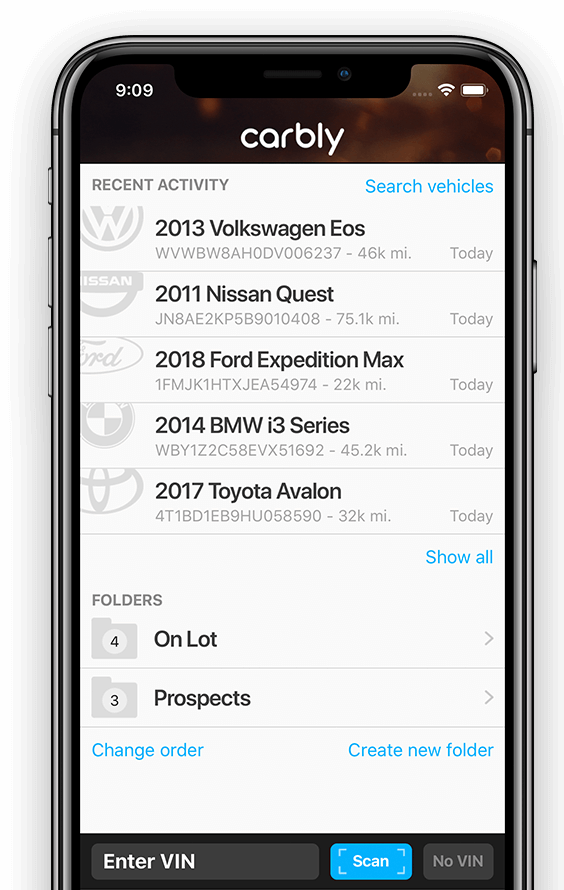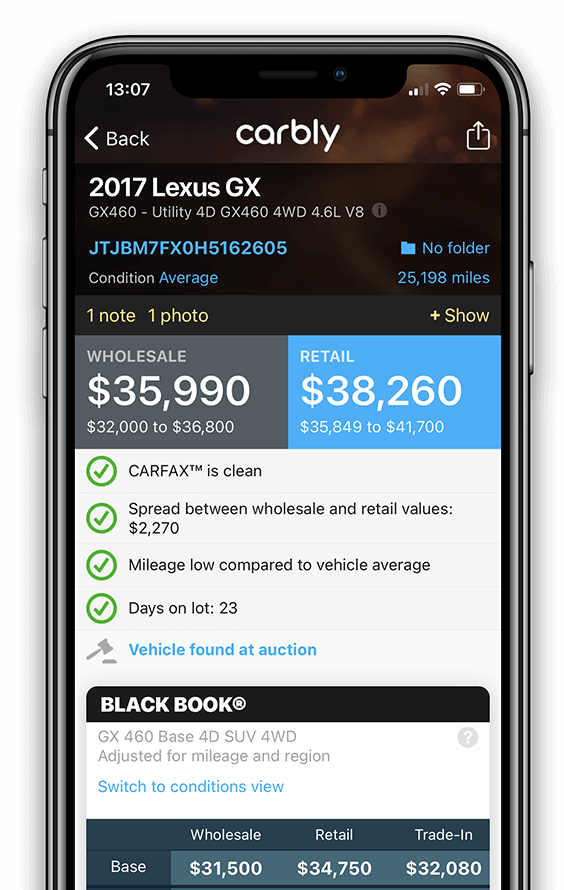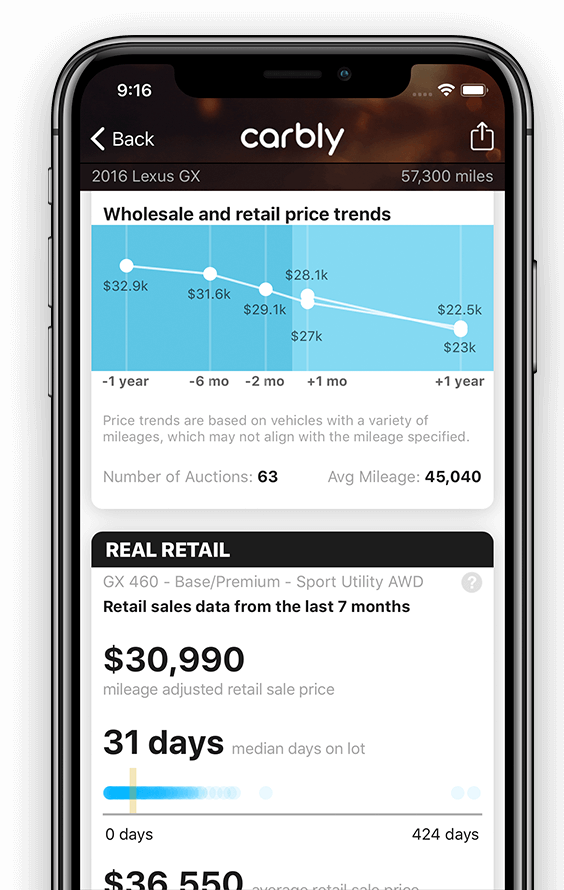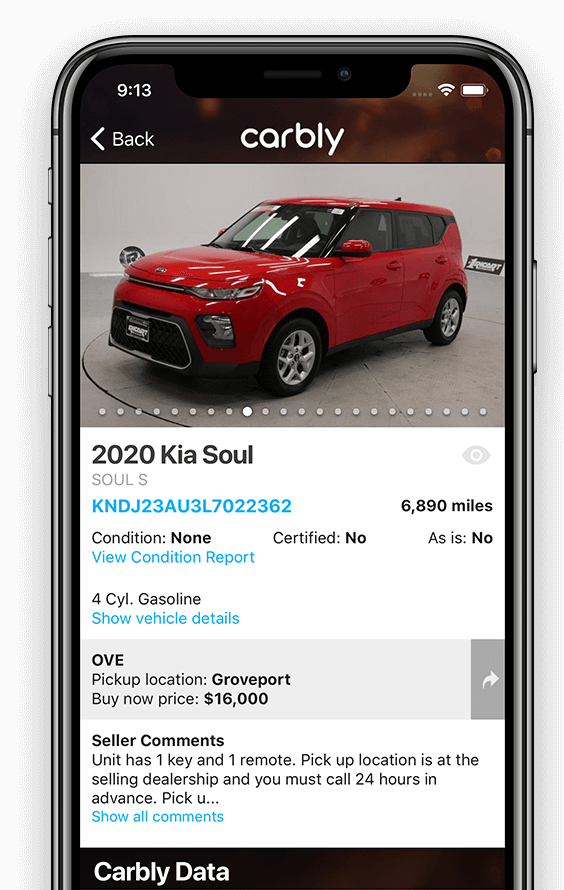The Right Place to Start
When appraising vehicles there is no shortage of data and reference points these days. They all have their uses and should not be overlooked but before you get too far into the process, you should start by examining a vehicle history report. Details that you uncover in a Carfax or Autocheck report could dramatically alter your approach when appraising a vehicle and also substantially impact its value and retail appeal. Even to the most experienced and skilled set of eyes a vehicle history report is the fastest way to get an accurate notion of the quality of the vehicle in front of you. After all, if you don't know how a specific vehicle actually compares to the average example, consulting appraisal and market data won't be of much use.
A Carfax report might flag an accident; now you have a head start when sighting the panels for damage. In some instances the history report could be so bad that you decide to pass on the vehicle altogether. Going deep into the numbers on a vehicle like that would have been a complete waste of time. The more you know about a vehicle, the less likely you are to make a mistake when appraising so it's just foolish not to look at the history report.
Key Areas of Focus
You could spend all day reading a Carfax report because they are so detailed but nobody has that sort of time. Checking the following items will ensure that you aren't left with a nasty surprise after buying a vehicle at wholesale:
- Maintenance history: This shouldn't need too much clarification. Anyone buying at wholesale wants to know that the vehicle was properly maintained within the correct intervals. If the previous owner didn't maintain the vehicle, there may be all manner of problems and costs lurking under the hood. There's nothing worse than buying something and losing money because you have to make costly repairs. Customers are especially wary of poorly maintained vehicles too. If you do encounter a vehicle that hasn't been maintained, it's best to avoid it of course but if you have to step up to it to put a deal together, you'd better make sure you understand how it impacts value and your ability to sell it.
- Number of owners the vehicle has had: every customer is chasing that ‘one owner used car or truck'. No one has ever walked into a dealership and asked to see nothing but cars with 5 plus owners. Typically the longer that an individual owns a vehicle, the more pride they take in it and maintain it accordingly. Vehicles like that require less recon and demand a better price on the lot. If you find yourself having to buy something with more owners than the norm, make sure that you adjust your actual cash value (ACV) to reflect that.
- Accidents and damages: if they haven't actually been involved in an accident, most vehicles on the road these days have sustained damage in some form or another. And because of services like Carfax and Autocheck customers know all about it. Given the choice most customers would prefer not to buy something that has a tarnished vehicle history report. As a result vehicles with an imperfect record are worth less and can take longer to sell. It certainly can be a bitter pill for a customer to stomach when they find out their trade-in value is reduced because of an accident that wasn't their fault but as a dealer you can't afford to overlook its significance on value and potential resale.
- Recalls: recent high profile recalls like the GM ignition switches and Takata airbags have really served to highlight the importance of properly assessing outstanding recalls on vehicles you are buying. Both of those recalls saw vehicles sitting for extended periods of time while dealers waited for parts. A little homework on the front end could prevent you having valuable funds tied up in inventory that you cannot sell while you attempt to perform recalls. It could also be what prevents you from unknowingly exposing yourself to a costly lawsuit by selling something that you shouldn't have.
Bottom Line
Whether you're taking cars in on trade to put new car deals together or buying at the auction for a used lot, you always want to buy the best examples you can and be in them right. Doing so will ensure a good reputation with customers while remaining profitable. With the wealth of information that other dealers and customers have at their disposal, failing to understand the impact of a vehicle history report or disregarding it entirely can only result in costly losses.





